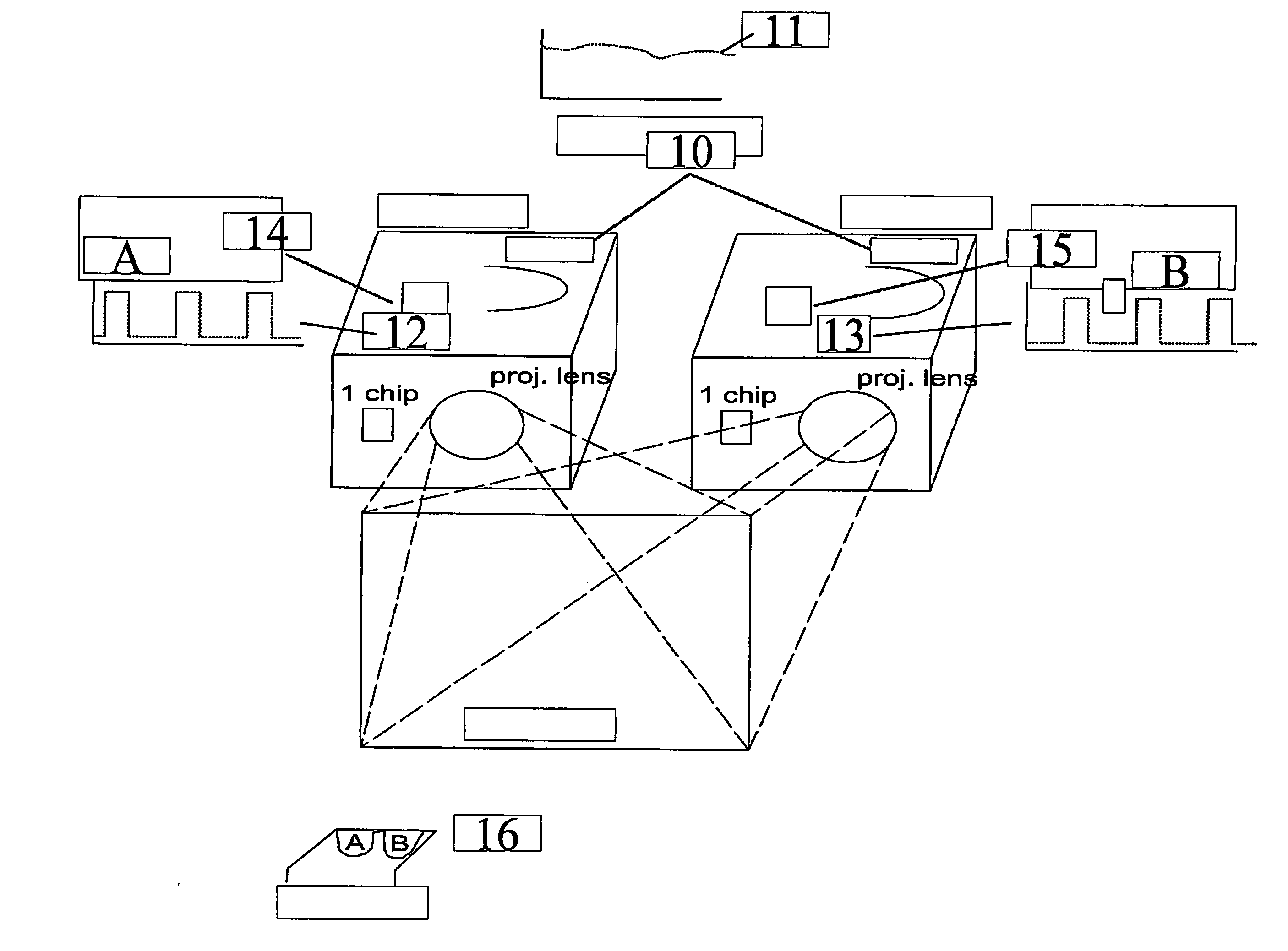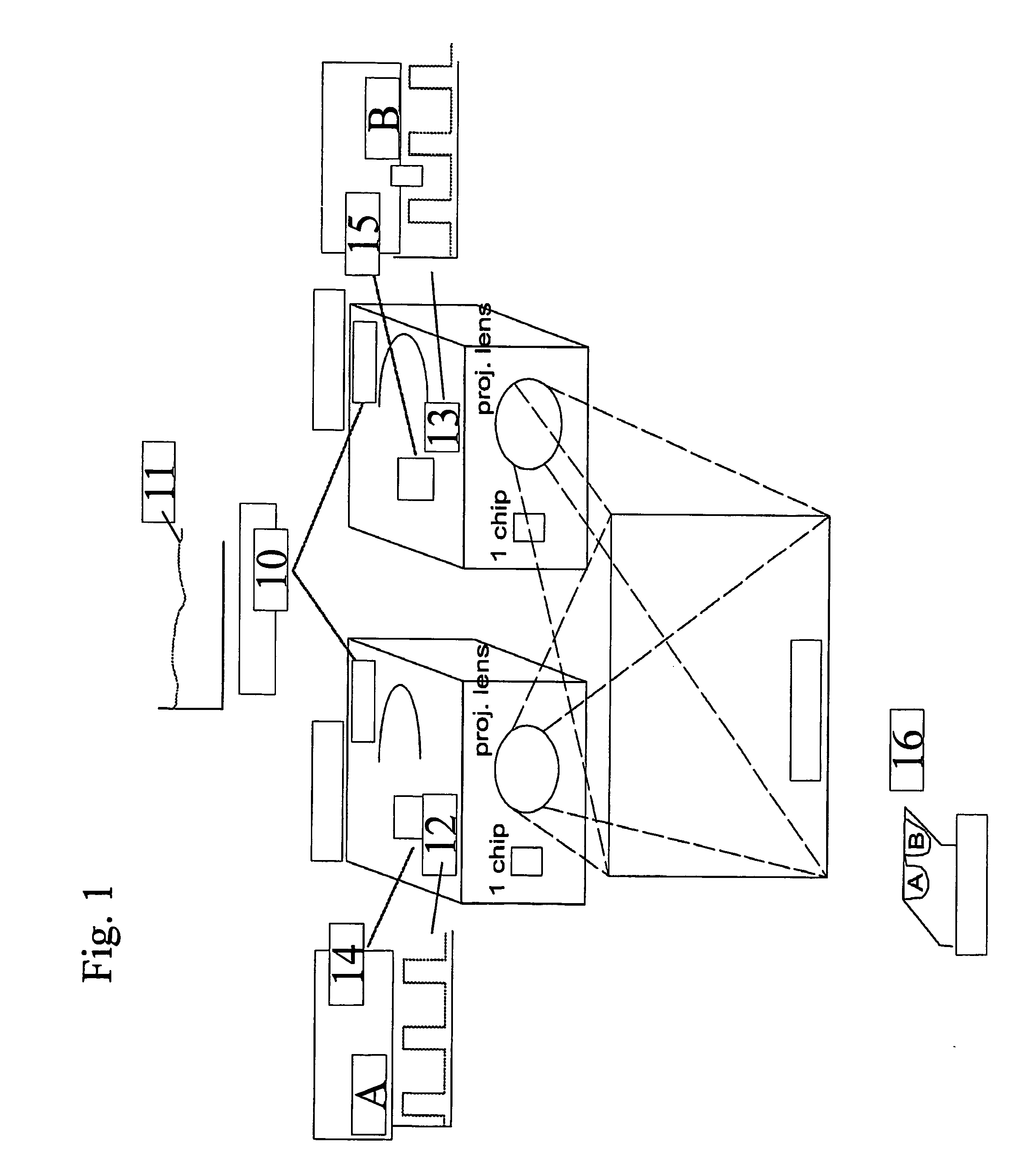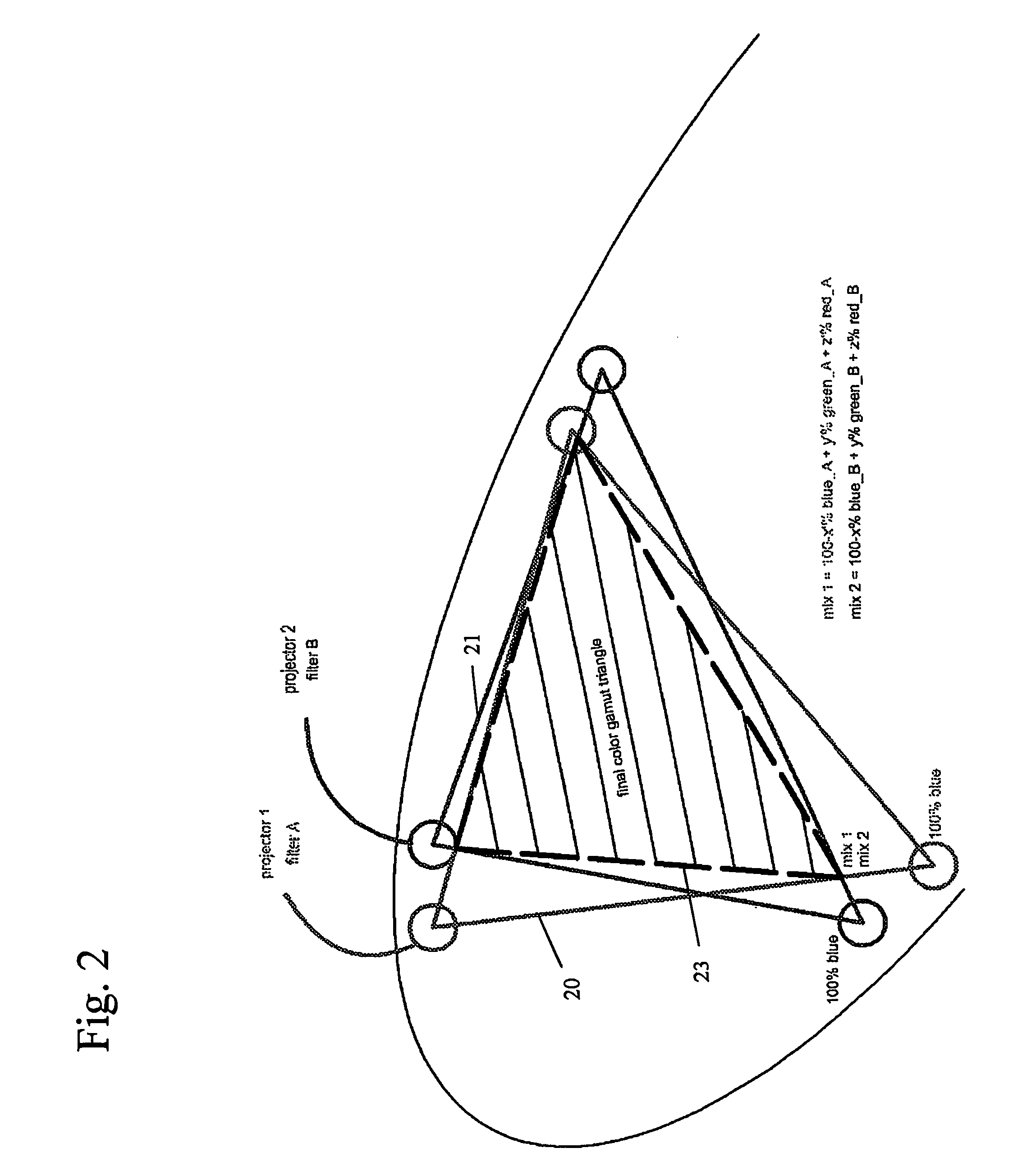Method and device for performing stereoscopic image display based on color selective filters
a color selective filter and stereoscopic image technology, applied in stereoscopic photography, instruments, optics, etc., can solve the problems of color artifacts appearing in projected images, obscuration devices often tend to disappear,
- Summary
- Abstract
- Description
- Claims
- Application Information
AI Technical Summary
Benefits of technology
Problems solved by technology
Method used
Image
Examples
embodiment 1
[0053] Single chip digital light processing (DLP™)products are currently popular as low price alternatives for 3-chip DLP and liquid crystal display (LCD) products. In single chip DLP projectors the image is created by one Digital Mirror Device (DMD) and the color is added by shining the reflected light through a spinning multi segment color wheel. By using DLP Technology, projectors can be made lighter in weight and smaller in design while also producing contrast ratio's of up to 2000:1 and beyond. Mercury-based high pressure short arc lamps, such as e.g. Ultra High Performance (UHP™) lamps obtainable from Philips, or Super High Pressure (SHP) lamps obtainable from Mitsubishi, are commonly used in these applications due to budget constraints. The spectrum of these lamps is characterized by huge peaks and a modest continuum, despite the high pressure.
[0054] Despite the budgetary advantages of the above described family of lamps for single chip projectors, it is preferable, although...
embodiment 2
[0060] In three chip DLP products, Texas Instruments supports bit sequences suitable for 3D projection, where images for the left eye and for the right eye are successively projected onto a single display device. In addition, some viewing tools with active or passive shutter means (e.g. glasses, lenses) are needed to discriminate images intended to be viewed by one eye from images intended to be viewed by the other.
[0061] In the prior art this may be done by using a product called Z-screen® from Stereographics Company, California, but this product uses polarization to separate the two images, which leads to a lower stereoscopic quality than if a color selection method would be used like it is explained in the text below, due to a higher cross-talk between the image for left and right eye. Furthermore, stereo defined by polarization requires non-depolarizing screens (or lowly-depolarizing ones) both for front and retro projection. In that case one is limited to high gain screens (i....
embodiment 3
[0079] This embodiment relates to the use of filters which filter a parameter of the light in a color selective manner, e.g. color selective filters, with mutual overlap, combined with polarization filters. With “filters which filter a parameter of the light in a color selective manner” in this and other embodiments is meant any suitable optical filter which filters amplitude, frequency or polarisation of the light in a color selective manner. A “filter which filters amplitude of the light in a color selective manner” is typically known as a color selective filter; i.e. a filter which transmits some wavelengths or wavelength bands of light impinging onto it, and filtering out, i.e. reflecting and / or absorbing other wavelenghts or wavelength bands of light This type of filter includes optical low pass filters, optical high pass filters or optical band pass filters. A “filter which filters polarisation of the light in a color selective manner” is typically known as a color selective r...
PUM
 Login to View More
Login to View More Abstract
Description
Claims
Application Information
 Login to View More
Login to View More - R&D
- Intellectual Property
- Life Sciences
- Materials
- Tech Scout
- Unparalleled Data Quality
- Higher Quality Content
- 60% Fewer Hallucinations
Browse by: Latest US Patents, China's latest patents, Technical Efficacy Thesaurus, Application Domain, Technology Topic, Popular Technical Reports.
© 2025 PatSnap. All rights reserved.Legal|Privacy policy|Modern Slavery Act Transparency Statement|Sitemap|About US| Contact US: help@patsnap.com



